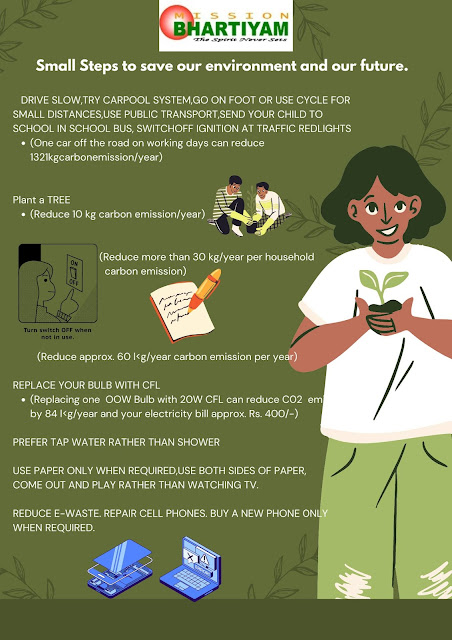 |
| Photo Source: Internet |
The Chairperson,
National
Commission for Women,
New
Delhi
March 8, 2017
Subject: Request to Issue Suggestions to
Indian Railways to Improve
Safety of Women in Trains
Dear Madam,
We, a group of responsible and committed citizens,
are writing to you with suggestions to improve and ensure the safety
of women in Indian railways. The Railways is
an important communication link in our country. Every day, millions of Indians
commute through the railways. However, there are several challenges in this
sector. Recently, there have been many efforts to improve the Indian railways
but a lot needs to be done for the safety of passengers, especially the women passengers.
The Railways is, unfortunately,
another vulnerable space for women. Sexual assault, molestation, and even rapes have been reported in trains and are even rising. As per
the information available on the Indian Railways website, the incidents of rape
year wise are: 21 in 2011, 47 in 2012, 54 in 2013, 40 in 2014 and 33 (until Sept month) in 2015 whereas, crime
against woman other than rapes 'registered' in IPC are: 154 (in Train) and 222
(in Premises) in 2011; 229 (in Train) and 215 (in Premises) in 2012;
350 (in Train) and 289 (in Premises) in 2013; 330 (in Train) and 258
(in Premises) in 2014; 260 (in Train till Sep month) and 172 (in Premises
till Sep month) in 2015.
In view of this, we have
thought of several measures that can contribute to making our trains safer for women:
a) A female-only coach, especially for long
distance journeys involving one or more nights of travel is still unavailable in all
such trains where night journey is required. Presently there are few trains
with such provisions but that needs to be increased.
b) Emergency buttons in
trains, in the washrooms, to ensure women feel safer in trains. To
avoid misuse, a heavy fine can be charged in case of its violation. There
may also be an emergency complaint system
(with the provision of the speaker) that can connect a woman traveler directly to the security person/guard who is present in the train.
c) Deployment of guards in every coach or at least two guards patrolling
trains, especially overnight ones should be achievable. Though it is in use at
present, but somehow this provision is not much effective. An analysis must be
done regarding the same. Few more female guards must be deployed and they
should preferably be in civil
dress.
d) Better working
conditions for women employees. Since the railways have taken this
initiative of deploying women officers and women staff for various other jobs
at the station, they should also take care of their women employees and must provide them
with better and healthy working conditions that would cater to their unique job
needs. The responsibility of the Railways is huge in terms of providing
necessary amenities and security to its women employees in station premises and
on-board trains so that they are able to conduct their responsibilities nicely.
e) A sanitary napkin
vending machine in washrooms of railway stations. Sanitary Napkin along with
basic medicines should be one of the things that should be available (on request) in trains.
f) Hygeine should be taken care of. A lot of women/people have complained about dirty loos and unhygienic
conditions in Indian trains which in turn is the reason for the spread of a lot of diseases.
Care should be taken to maintain cleanliness inside and outside the trains.
g) There should be a provision for women
traveling alone or in groups to be able to change their seats during the
journey. This should be authorized and facilitated by the T.T.E. If (s)he feels the people around
the female(s) are of a suspicious
character and condition, that request should be immediately taken into
consideration.
h) Women helpline numbers
(Toll-Free Helpline No. 182 and All-India Helpline No. 138) are in use at few
places, but not completely effective. Also, its information has not been
disseminated. A lot of women are unaware of such a helpline. We suggest that its
information should be disseminated
through stickers in compartments, through advertising on display boards
in stations, through printing in train tickets and through broadcast and social
media as well. This helpline number should also be sent by Railways and IRCTC
along with Ticket information via SMS. Effective reporting and action should be
planned for its proper implementation as many times such helpline numbers are
busy/non-responsive. As connectivity during travel is also an issue,
railways must do its best effort to improve connectivity in no signal zones or
to take up the matter with telecom operators for providing shared networks for calling Helpline numbers under 'emergency' / SOS
call.
i) A social media App
R-Mitra was launched last year by Hon'ble Railway Minister for 'Eastern
Railway' women commuters. A lot of women
have complained that this app doesn’t work properly. We suggest that
effectiveness of this app should be monitored and if found suitable, improved versions
should be launched for other zones as well
j) CCTV cameras are
installed in very few trains. We suggest these cameras should be installed in all the trains and their
working must be ensured. These cameras should be installed on all routes with proper technical analysis and
their installation must be feasible and effective in terms of women
safety.
k) Though railway reservation system
is computerized, such possibility should also be explored where all booked
tickets by a single woman or a group of
women can be (even if later) combined together in the vicinity of each other.
We appeal to you to consider
these suggestions and direct the Ministry of Railways to think upon these
measures and adopt them to ensure women’s safety in trains.
Thank
You
Regards,
Devika Mittal, Madhulika Narasimhan, Ravi Nitesh and Shruti Arora
Mission Bhartiyam















